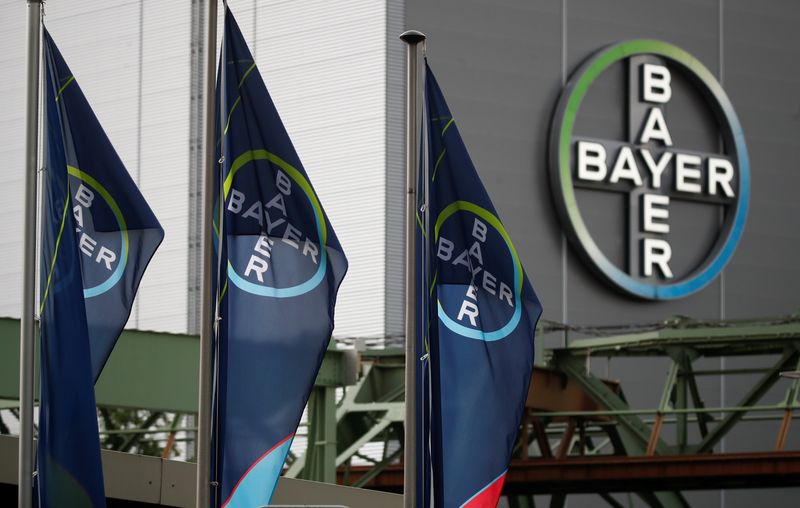By Patricia Weiss and Svea Herbst-Bayliss
(Reuters) - Bayer (OTC:BAYRY) investor Union Investment called on Wednesday for the German company to reconsider its litigation strategy for glyphosate and a key U.S. trial lawyer signaled interest in re-starting settlement talks for thousands of Roundup weedkiller cases.
The two spoke out after Bayer lost its third consecutive trial over the weed killer's alleged carcinogenic effects. More cases are scheduled to go to trial in U.S. courts in the coming months.
"It is a very different day today than it was after nine wins," Jim Onder, who represents some 14,000 claimants, told Reuters.
A California jury on Tuesday found Bayer liable in a case brought by a man who claimed his cancer was due to exposure to the company's glyphosate-based Roundup weed killer and ordered it to pay $332 million in damages.
The jury verdict was the third defeat for Bayer, after the company was ordered to pay a total of $175 million and $1.25 million in two other Roundup lawsuits.
Bayer said it would appeal all three verdicts.
Before the three consecutive losses, Bayer had won nine cases in a row.
After this week's loss, investor nervousness is mounting about the company's future litigation liabilities.
"Bayer's strategy is to file lawsuits only when it believes it has a good chance of winning. This has worked nine times, however has now failed thrice" said Markus Manns, a fund manager at Union Investment.
"Bayer should review its strategy again now to avoid further negative headlines," he added.
Union Investment has a 1.14% stake in Bayer, making it one of the 10 largest shareholders, according to LSEG data.
The loss could also help re-ignite settlement talks that broke apart over the summer, U.S. lawyer Onder said. The negotiations between the company and Onder, who also represented claimants in Johnson & Johnson (NYSE:JNJ)'s talc lawsuits, stalled amid disagreements over payouts. "The company was offering little or nothing of value to most of my clients," Onder said.
While he has not yet reached out to Bayer to re-engage, he said "The plaintiff bar is ready to be reasonable. If the company's offers were to move higher, we could get these cases settled."
Bayer declined to comment.
German investor Manns said Bayer had rightly tried to avoid an expensive settlement with all plaintiffs right away, in view of its difficult cash situation and high levels of debt, while acknowledging it would "be a difficult balancing act for Bayer".
At the last count, settlements were still pending in 47,000 of the approximately 160,000 claims filed, according to Bayer.

In August, Bayer CEO Bill Anderson underscored his predecessor's hawkish stance on the readiness to settle remaining glyphosate litigation.
"We have to be very tough in the face of our opponents who see us as a place to make a good business and we intend to defend our company's interest to the fullest," he said.